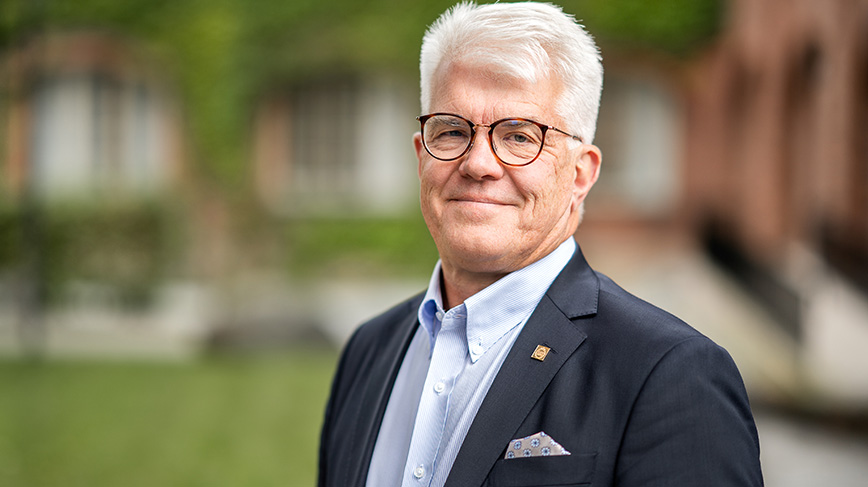Deepened collaborations focus in internationalization

To further develop and deepen KTH’s international collaborations within research, education and innovation. To involve all of KTH in the internationalization work. These are the key ideas of the policy decision for KTH's international research and education collaborations until the end of 2028.
"We are very well established internationally, and we have a strong position in terms of ranking and recruitment. The idea is primarily to strengthen existing collaborations, instead of working as broadly as we have been previously," says Stefan Östlund, Vice President of International Relations.
The basis for KTH's previous internationalization work was a strategy for the period 2018-2023.
How will the collaborations be deepened?
“For example, we will focus our joint training programmes mainly on existing partners, and the joint doctoral supervision programme aimed at our strategic partners will increase. “
Are there - as before - any prioritized regions of the world?
"No, we work in the same way as before with different regions, but the focus of the policy decision is now instead in the categories of the Nordic countries, Europe and countries outside Europe. In the Nordic region, for example, cooperation within Nordic 5 Tech will be strengthened according to the focus decision adopted by the President on 18 June. At European level, it is the collaboration within the university alliance Unite! that will be further developed, but relations with countries such as the UK and Switzerland are also important. Outside Europe, strategic partnerships are being developed further and we have defined what characterizes these collaborations. From the previous strategy, the focus on the United States and the United Kingdom continues, and it is conceivable that there will be an additional strategic partner university."
Mobility for researchers and students will also be strengthened and formalized more clearly.
“International co-publications are of course always important, and mobility is a prerequisite for that. We also need to improve our ability to smoothly host visiting researchers. When it comes to student exchanges, we need to advocate for subject reciprocity - that is, exchanges in the same subject area. This is something that our partners want.”
Another area mentioned in the decision is the work on responsible internationalization.
"Yes, this is an important culture-building programme that must permeate the whole of KTH. We need to create an ability among all employees to be able to reflect on the pros and cons of specific international collaborations and thus increase security while we can continue to be an open university. “
KTH's preliminary figures for newly admitted and paying international students for the autumn have increased significantly. A total of 775, compared to 535 in 2023 and 540 in 2022 at the same time. 773 of the paying students are admitted to master's programs, two are admitted to the bachelor's program Information and Communication Technology. What does that tell us?
"It shows that KTH as a university, as well as the programs, have a strong reputation internationally. We also have a well-functioning international student recruitment programme. While this of course is a positive development, we will need to further analyze how many international students we can receive," Östlund says.
Text: Jill Klackenberg
